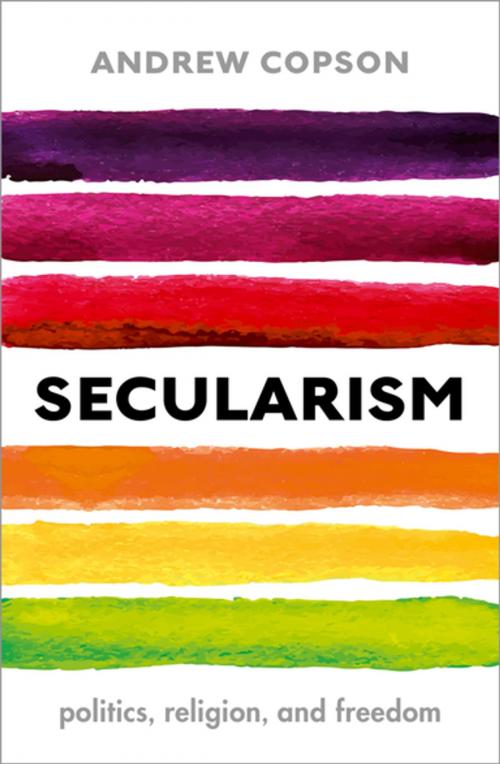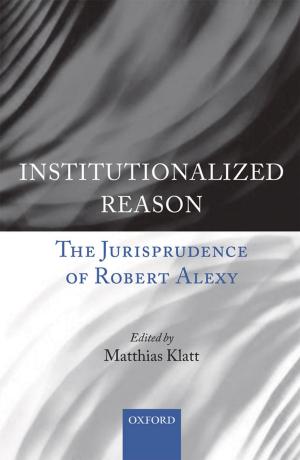Secularism
Politics, Religion, and Freedom
Nonfiction, Social & Cultural Studies, Political Science, Social Science, Religion & Spirituality| Author: | Andrew Copson | ISBN: | 9780192536839 |
| Publisher: | OUP Oxford | Publication: | September 22, 2017 |
| Imprint: | OUP Oxford | Language: | English |
| Author: | Andrew Copson |
| ISBN: | 9780192536839 |
| Publisher: | OUP Oxford |
| Publication: | September 22, 2017 |
| Imprint: | OUP Oxford |
| Language: | English |
Until the modern period the integration of church (or other religion) and state (or political life) had been taken for granted. The political order was always tied to an official religion in Christian Europe, pre-Christian Europe, and in the Arabic world. But from the eighteenth century onwards, some European states began to set up their political order on a different basis. Not religion, but the rule of law through non-religious values embedded in constitutions became the foundation of some states - a movement we now call secularism. In others, a de facto secularism emerged as political values and civil and criminal law altered their professed foundation from a shared religion to a non-religious basis. Today secularism is an increasingly hot topic in public, political, and religious debate across the globe. It is embodied in the conflict between secular republics - from the US to India - and the challenges they face from resurgent religious identity politics; in the challenges faced by religious states like those of the Arab world from insurgent secularists; and in states like China where calls for freedom of belief are challenging a state imposed non-religious worldview. In this short introduction Andrew Copson tells the story of secularism, taking in momentous episodes in world history, such as the great transition of Europe from religious orthodoxy to pluralism, the global struggle for human rights and democracy, and the origins of modernity. He also considers the role of secularism when engaging with some of the most contentious political and legal issues of our time: 'blasphemy', 'apostasy', religious persecution, religious discrimination, religious schools, and freedom of belief and thought in a divided world.
Until the modern period the integration of church (or other religion) and state (or political life) had been taken for granted. The political order was always tied to an official religion in Christian Europe, pre-Christian Europe, and in the Arabic world. But from the eighteenth century onwards, some European states began to set up their political order on a different basis. Not religion, but the rule of law through non-religious values embedded in constitutions became the foundation of some states - a movement we now call secularism. In others, a de facto secularism emerged as political values and civil and criminal law altered their professed foundation from a shared religion to a non-religious basis. Today secularism is an increasingly hot topic in public, political, and religious debate across the globe. It is embodied in the conflict between secular republics - from the US to India - and the challenges they face from resurgent religious identity politics; in the challenges faced by religious states like those of the Arab world from insurgent secularists; and in states like China where calls for freedom of belief are challenging a state imposed non-religious worldview. In this short introduction Andrew Copson tells the story of secularism, taking in momentous episodes in world history, such as the great transition of Europe from religious orthodoxy to pluralism, the global struggle for human rights and democracy, and the origins of modernity. He also considers the role of secularism when engaging with some of the most contentious political and legal issues of our time: 'blasphemy', 'apostasy', religious persecution, religious discrimination, religious schools, and freedom of belief and thought in a divided world.















